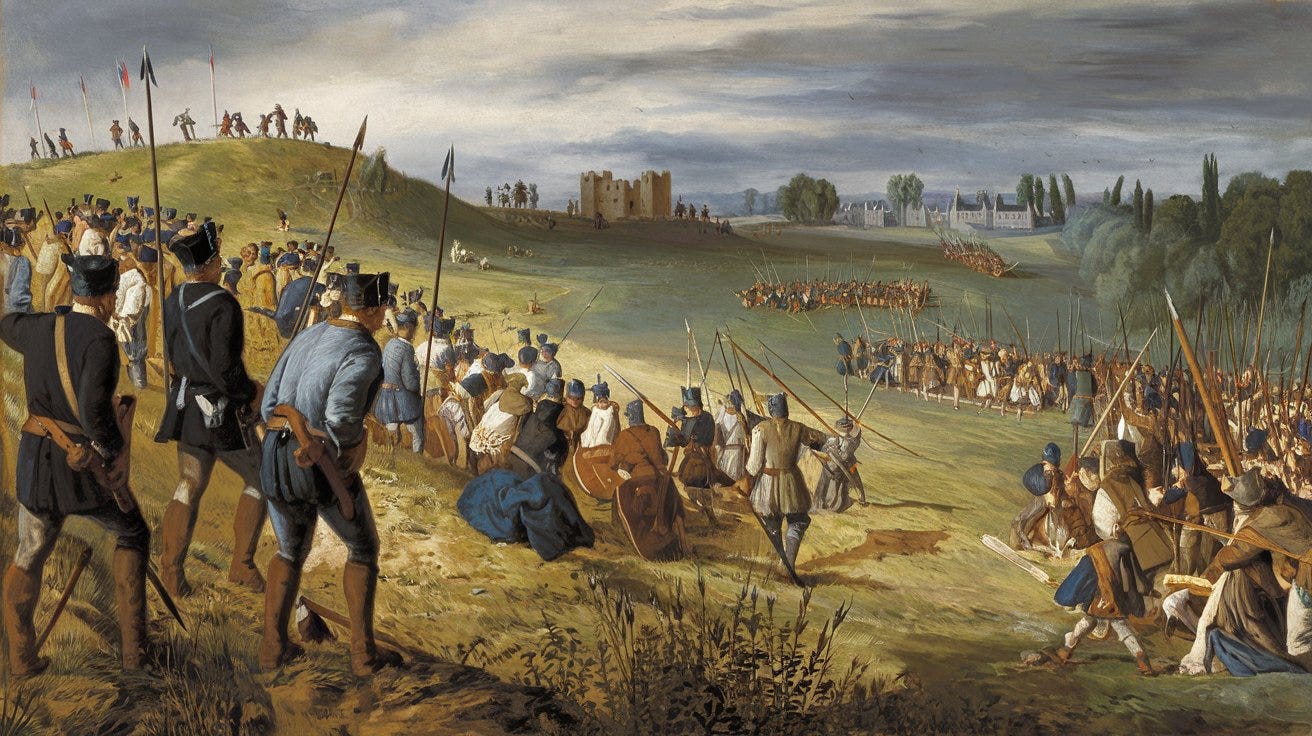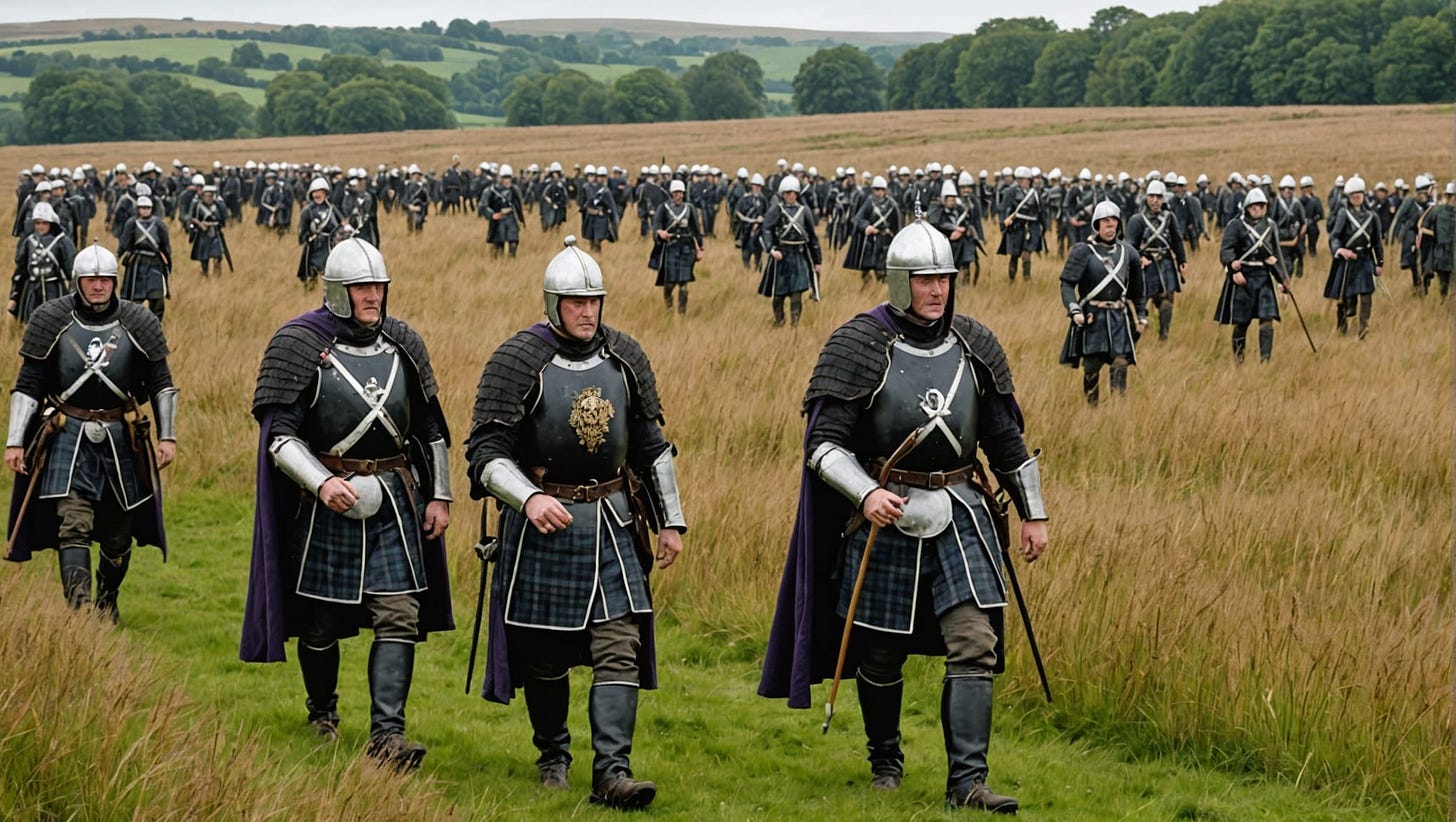On Branxton Hill, September mist clings
to armor and bone, a shroud for nations.
Scotland’s king plays at war like a game of chess,
but the board is mud and blood, pawns breathing.
James IV, resplendent in his folly,
leads from the front, a crown among footmen.
His banner snaps in Northumberland wind,
herald to hubris, to history’s cruel jest.
Across the field, Surrey’s son
young Howard, turns defeat to cunning.
English bills slice through Scottish pikes
like a scythe through summer wheat.
Ten thousand Scots fell that day, they say.
A generation reaped before its time.
In Edinburgh, the wail of widows rises,
a keening that echoes still in stone and memory.
The flowers of the forest, plucked and withered,
Nobles and commons alike fed to hungry soil.
What feast for worms, what bounty for ravens,
this harvest of men on Flodden’s slopes.
James’s body, stripped of finery,
no different in death from the lowliest archer.
A king’s blood soaks into foreign earth,
his silence now the loudest sound in Scotland.
In quiet glens and noisy taverns,
the story grows, changes, becomes legend.
Mothers warn their sons, wives curse ambition,
a nation learns the bitter taste of loss.
But time, that relentless tide, flows on.
Flodden becomes a word, a date, a warning.
Yet underneath the peace of centuries,
do you hear it? The clash of steel, the dying groan,
the endless roll call of the lost.
What it’s all about
This poem, “Flodden Field: A Weave of Fallen Thistles,” aims to emulate Robin Coste Lewis’s style through its use of historical narrative, vivid imagery, and a reflective tone that weaves together the personal and the political. It is my depiction of the Battle between the English and the Scots (led by King James Stuart)
The piece employs free verse with varied line lengths and stanza structures, similar to Lewis’s work. It blends concrete historical details (like the specific location and key figures) with more metaphorical and emotional elements.
Like Lewis often does, this poem explores themes of power, loss, and the long-lasting impact of historical events. It attempts to give voice to both the prominent figures (James IV, Surrey) and the unnamed masses who bore the brunt of the battle’s cost.
The poem also tries to challenge simplistic narratives by considering the battle’s impact beyond the immediate military outcome, looking at its cultural and emotional resonance through time.






